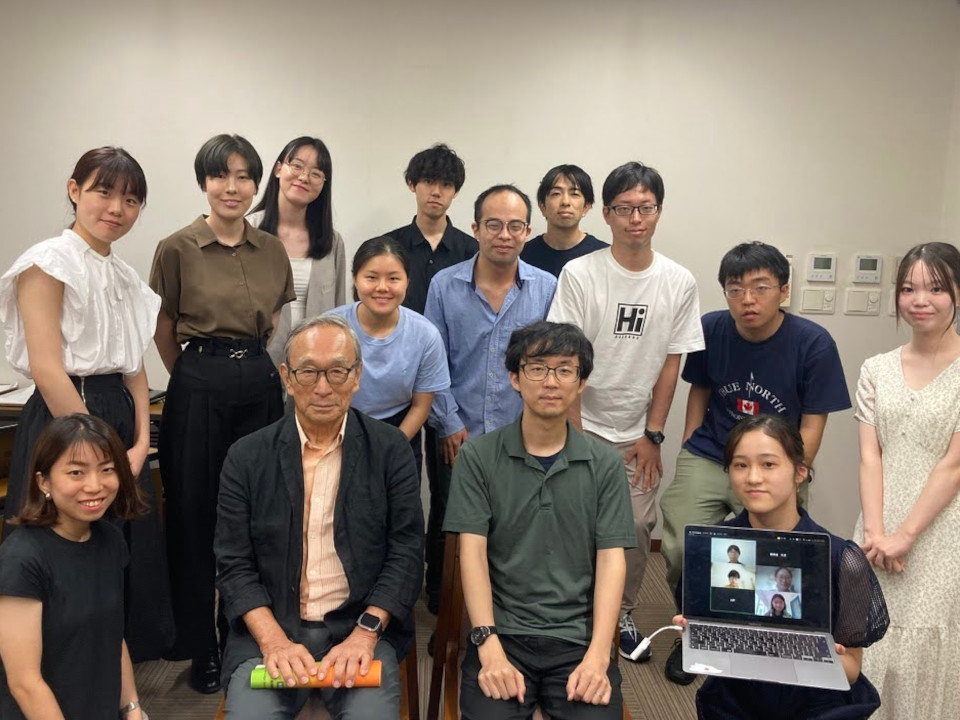- HOME
- Activities
- Forum List
- Forum Details
August.10.2024 KIP Forum "Mathematical Models of Infectious Diseases and Pandemics"

Lecturer: Mr. Akira Endo, The medical doctor
Profile: Dr. Endo graduated from the University of Tokyo Faculty of Medicine in 2017 and obtained his Ph.D. from the London School of Hygiene & Tropical Medicine in 2021. That same year, he joined Nagasaki University’s Graduate School of Tropical Medicine and Global Health as a Project Researcher and was appointed Visiting Professor the following year. In 2022, he became an Associate Professor at the Saw Swee Hock School of Public Health, National University of Singapore, a position he holds to this day. His area of expertise lies in infectious disease epidemiology and mathematical modeling. His research focuses on the epidemiological study of emerging and re-emerging infectious diseases through mathematical modeling. In recognition of his achievements, he was selected as one of the 100 recipients of the 2024 Young Scientists’ Award from the Minister of Education, Culture, Sports, Science and Technology (MEXT), Japan. Dr. Endo joined KIP in 2012, served for several years as committee chair, and participated in training programs in the U.S. and various regions.
Japan managed to control infections and deaths relatively well during the COVID-19 pandemic. However, if a future pandemic with a higher mortality risk occurs, would the same measures suffice? Should we establish legal frameworks to restrict people’s actions?
【Speech and Q&A】
Previously, infectious diseases were often seen as issues in developing countries. However, global threats like MERS, COVID-19, and Ebola remain a persistent concern. The “interdependence” of risk, which means one person’s risk affects others, often requires behavior restrictions on a population level. When responding to pandemics, it’s essential to consider these factors in mathematical models. During the Q&A session, concerns were raised about the uncertainty of human behavior, the influence of economic perspectives on Japan’s COVID-19 response, and the effectiveness of school closures. Japan’s COVID-19 response, for the first time, relied on mathematical models. Despite the country’s relative success, there’s no guarantee that the same approach will work in future pandemics. A key reflection was that politicians sometimes avoided full responsibility, instead placing experts in the spotlight as scapegoats. The discussion also touched on human rights issues, including freedom of mobility, privacy, and racial discrimination during the pandemic. Additionally, there’s a concerning possibility that authoritarian regimes might be better equipped than democracies to control infections, presenting a significant dilemma.
【Group and Ground discussion】
The discussion addressed the need for legal frameworks to restrict actions during high-risk outbreaks. Proponents argued that pre-emptive legal measures and clear accountability are essential, while opponents argued the difficulty in defining and effectively implementing such laws. Overall, the majority favored establishing legal frameworks.
【Personal Opinion】
We had the privilege of hearing from Mr. Endo, who contributed to the government's COVID- 19 response using mathematical modeling. He shared a profound insight: “No matter how we respond, pandemics will always bring negative consequences. The important question is how society should distribute this burden.” His words left a deep impression on me. I will continue to reflect on how to prepare for the next inevitable pandemic.
Nano Nishimura, Sophia University, Humanities, 2nd year


